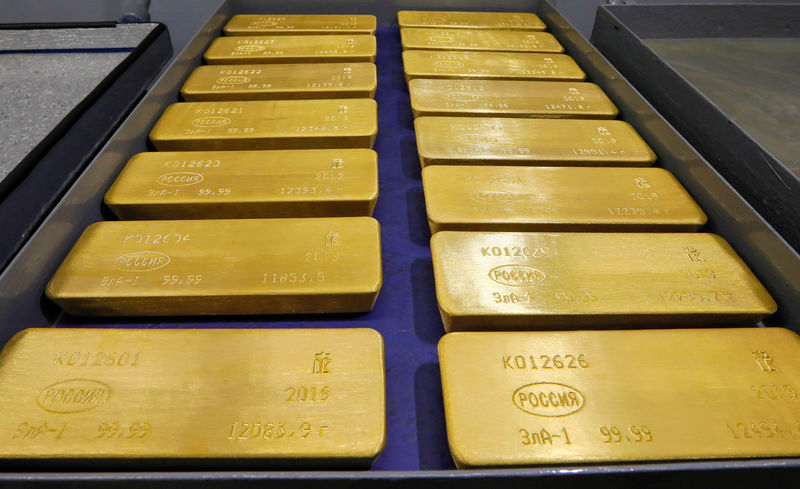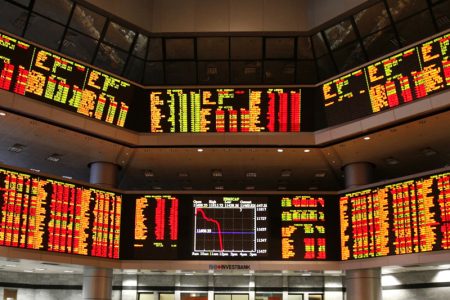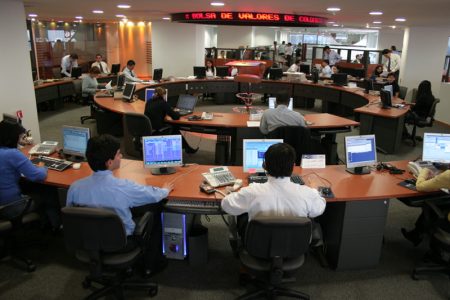Investing.com– Gold prices fell in Asian trade on Wednesday, extending a drop from record highs amid growing bets that the Federal Reserve will cut interest rates at a slower pace in the coming months.
A firm dollar also weighed on broader metal markets, as bets on a smaller Fed rate cut drove up U.S. Treasury yields.
fell 0.2% to $2,615.90 an ounce, while expiring in December fell slightly to $2,634.20 an ounce by 00:57 ET (04:57 GMT). Spot prices had hit a record high of $2,685.96 an ounce earlier this month.
Gold eases with Fed, inflation cues on tap
Bullion prices were pressured by uncertainty over U.S. interest rates, as an increasing number of traders bet that the Fed will cut rates by a smaller, 25 basis points in November.
The of the Fed’s September meeting are due later on Wednesday, and are expected to provide more insight into the central bank’s stance. The Fed had cut rates by 50 bps in September and announced the start of an easing cycle.
But strong payrolls data for September raised doubts over just how much impetus the Fed had to keep slashing rates. This notion pushed up the dollar and weighed on precious metal prices, given that higher rates diminish their appeal.
inflation data is due on Thursday and is also expected to factor into the Fed’s decision.
Other precious metals were mixed on Wednesday, but were also nursing losses in recent sessions. fell 0.1% to $964.90 an ounce, while rose 0.8% to $30.865 an ounce.
Copper prices nurse steep losses amid China woes
Among industrial metals, copper prices rose slightly on Wednesday, but were nursing steep losses in recent sessions as optimism over more stimulus measures in top importer China ran dry.
Benchmark on the London Metal Exchange rose 0.9% to $9,844.0 a ton, while December rose 0.5% to $4.4975 a pound.
Both contracts slid around 2% on Tuesday after China’s top economic planner gave scant cues on how the government planned to implement its recent;y unveiled stimulus measures.
Investors were also disappointed by a lack of fiscal stimulus measures from China, despite repeated calls for more targeted economic support in the world’s biggest copper importer.
Read the full article here











